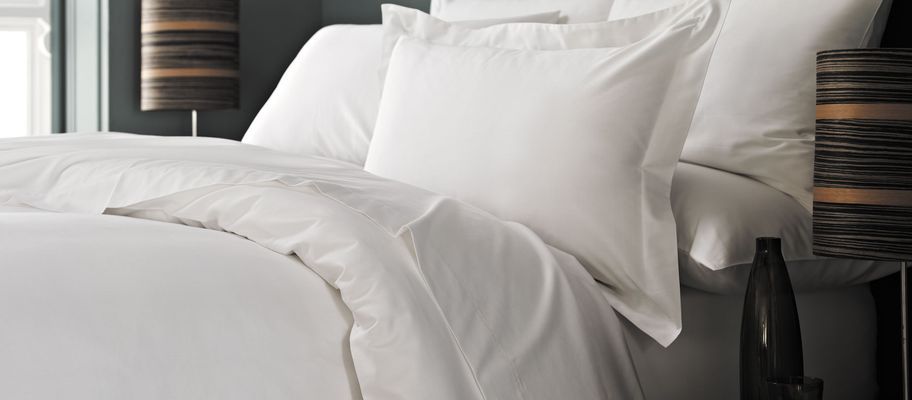We use cookies to give you the best possible experience. To accept cookies continue browsing, or view our Cookies Policy to find out more.
How to Relieve Stress In A Hectic World

Today’s hectic world is a mishmash of long work hours, endless notifications on our phones, frustrating commutes, interrupted sleep and just general family life. With all this going on, it’s no wonder that many people can end up feeling stressed out and utterly exhausted.
But life doesn’t have to be stressful, no matter how many things you have going on. While you’re probably not going to completely eliminate stress from your life, there are ways to reduce that stress and live a more relaxing life. Here we’ll go through some of the most important stress relief tips in order to live a more relaxing life.
Get More Sleep
This is quite an obvious point, and it’s one of the most important things you can be doing in order to reduce stress. Not getting enough sleep can leave you irritable and negatively affect your mood, plus making you slow and affecting your concentration.
It’s easy to say just go to bed earlier, but this doesn’t always fix the root of the problem and you can simply just end up lying there not sleeping. Setting a bedtime routine will get you and your body ready to fall asleep. That means switching off all blue screen devices, such as phones and TV’s, at least an hour before bedtime. Ensure your bedroom is geared around sleeping, so having a TV in there and your phone by your bed isn’t a great idea.
If you’re not ready to sleep, read a book or listen to some soothing music. You can also try using a lavender spray on your pillows, removing all sources of light and having a bath to wind down before bed.
If it’s your bedding that is stopping you from getting a good night’s sleep, then it’s time to invest in some quality bedding. Bed sheets with a high thread count, duvets with high tog ratings and natural fillings such as goose and duck down all help give you a luxurious night sleep.
For more tips on how to get a great night’s sleep, it’s worth reading this article on the science of sleep.
Bedding For A Perfect Night's Sleep

Luxury Duvets
A great night's sleep starts with a super comfortable duvet. From lightweight synthetic duvets to cosy feather filled duvets, we've got you covered. Shop our duvets.

Comfy Pillows
Next up, a sumptuous pillow that gives your head excellent support will quickly help you drop off into a deep, relaxing sleep. Whether it's synthetic or feather filled, our pillows are favoured by hotels around the world because guests love them. Shop our pillows.

Bedding For Every Taste
Whether it's a crisp, clean bed sheet or or the added comfort of a mattress topper - Vision has something that will always contribute to giving you the best night's sleep. Shop our bed linen.
Have a Healthy Diet
Have you ever felt irritable an hour or so after eating a meal from a fast food restaurant? Stuffing your face with junk food – which is full of sugar, salt and various additives – isn’t just bad for the body, it can also have an effect on your mind. Your body needs to receive a sufficient amount of the proteins, healthy carbs, minerals and vitamins you need in order to operate to its full potential. That doesn’t mean that you can’t have the odd indulgence, it’s all about practising a balanced diet. Eat more fresh fruit and veg while cutting down on things like red meat and processed foods.
You also want to ensure you have a good level of blood sugar, as a reduced amount can leave you feeling lethargic.
Another good tip is to avoid stimulants such as caffeine and alcohol. This is especially the case in the hours before you go to bed. Even if you manage to quickly fall asleep, the quality of your sleep will suffer. Again, having a couple of cups of coffee throughout the day is fine, but don’t go overboard. If you’ve had a great night of quality sleep, you shouldn’t need to rely on a cup of coffee to wake you up in the morning. Instead of drinking stimulants, drink more water and things like herbal or sugar-free fruit teas.

Keep Active
Keeping active and exercising is just great advice in general. Combined with a healthy diet, you’ll feel fantastic and generally be fitter. But exercise is also a great way to relieve stress and generally boost your mood. There is even a link between being physically active and good mental wellbeing, according to the NHS.
Exercise releases chemicals such as dopamine and serotonin at a faster rate than usual, boosting happiness and your mood. It also lowers hormones that cause stress, such as cortisol. Cortisol is released by the body in response to stress and can negatively affect your concentration and even lead to physical and mental impairments if left unchecked.
What can you do to keep active? You don’t have to suddenly be hitting the gym or become obsessed with cross fit. There are small things that anyone can incorporate into their daily lives.
- Try to exercise at least 5 days a week, in 30-minute periods. It doesn’t have to be intense exercise, and a 30-minute walk every weekday is a great way to get started.
- Incorporate small physical changes into your daily routine, such as taking the stairs instead of the lift or getting off the bus a stop earlier than required.
- Do some short exercises when you wake up, such as some morning stretches.

Try Relaxation Exercises
In an age where we have a million different distractions, it’s easy to forget to take a little time out to simply relax. When I say take time to relax, I don’t mean slumping down in front of the TV. Take some time out to sit in a quiet room and really focus on relaxing. Meditation is an excellent way to practice this, but simply sitting there and concentrating on doing some simple breathing exercises is more than enough to leave you feeling calm and relaxed.
Take a Relaxing Soak in the Bath
There’s not much better than taking a long soak in the bath at the end of a stressful working day. A hot bath is a great stress buster as stress can cause muscles to contract, whereas a hot bath can loosen them up. Combine this with Epsom salts, low lighting and some relaxing music and you’d be hard pressed not to feel relaxed once you climb out of the bath.
After you’re out of the bath, wrapping up in 100% cotton bath towels followed by pulling on a luxury bathrobe is a great way to wind down.
Reduce and Organise Your Workload
We all seem to have a million and one things on our to-do list, but it doesn’t have to be that big. Keep the daily list manageable, such as 5 important tasks you need to get done and know you’ll be able to complete. Concentrate on these important tasks and try not to drift away, you’ll feel great when you come to the end of the day with an empty to-do list.
Keep in mind that it’s the quality of the work you output that matters, not the quantity.
Use Your Phone Less
Technology is fantastic, and phones help us with a thousand different tasks throughout our day. But phones are also a distraction, especially with the rise of social media and the ability to be connected to your work email 24/7. While the majority of phones now have ‘do not disturb’ modes, it’s better to put your phone out of sight, such as in a drawer, so you’re not tempted to constantly pick it up.
You should also try to cut down on screens in general, especially in the hour before bed time.
Talk About it
Getting it all out to a friend or family member is a great thing to practice. Don’t let everything eat you up inside, you’ll only end up feeling even more stressed out. Family and friends can offer great solutions to problems that you may not have initially considered.
Alternatively, talking to a trained professional about the causes of your stress and how to deal with it can help you overcome stress and keep you from bottling everything up and making the issue worse. Cognitive behavioural therapy will help you understand the thought patterns you're having, recognise any trigger points and help you formulate positive actions you can take. There is also mindfulness based stress reduction, which uses mindfulness, mediation and yoga to help you overcome stress.
Write it all Down
Similar to the above. While your friends and family should be receptive to talking through your problems, sometimes you just don’t want to bother people. Keeping a diary and getting all your worries and problems out of your head down on paper at the end of each day is great for stress relief. Take a look at these benefits to keeping a daily journal.










